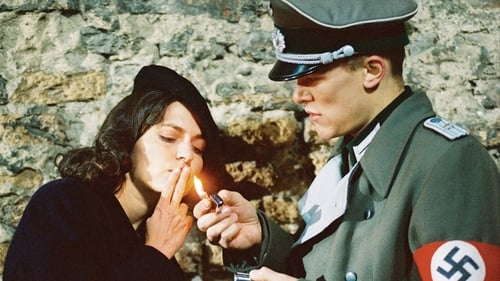
Editor
With her slap of the Federal Chancellor Kurt Georg Kiesinger in 1968, Beate Klarsfeld abruptly got known worldwide. The film highlights the significance of this act and its background. Beate Klarsfeld, born in Berlin in 1939 as Beate Künzel, is primarily known to people as "the woman with the slap" and as the Nazi hunter. In 1960 she went to Paris and met her future husband Serge Klarsfeld, whose father was deported to Auschwitz and murdered there. She was confronted with the darkest part of German history, about which she had learned nothing at school. Serge gave her books to read and made her actively deal with them. Since then, she has not let go of dealing with the crimes of the Nazi era. For them, it was always about "responsibility, not guilt".

Editor
Curiosa produção que trata de uma forma diferenciada um problema que já foi exposto à exaustão pelo cinema: a situação dos judeus durante a Segunda Guerra Mundial. Aqui o cenário é um gueto na Lituânia, durante o ano de 1942, onde os judeus são obrigados a sobreviver. Um oficial nazista, antes ator e músico de jazz, se apaixona por uma cantora e atriz judia que vive no gueto. Ali, ele ordena que ela e seus companheiros montem uma peça de teatro. No principio, os prisioneiros judeus se mostram resistentes para encarar a tarefa, mas com o tempo percebem que pode ser uma boa oportunidade para tentar levar um pouco de normalidade a toda essa situação e ainda arrumar um jeito de divertir seu sofrido povo. Aos poucos, eles escapam da censura e conseguem montar um espetáculo capaz de expressar sua terrível realidade.

Editor
Two friends, two Viennese, two poets, two unusual women. They have known each other for 30 years. Elfriede Jelinek is the better known of the two, the great author with her analytical mind and her social commitment against the whole "politician's docks." The now deceased lyricist Elfriede Gerstl remains rather tender with her poetry, although her poems do not miss a certain amount of sharpness, albeit ironically packed. When the two Elfrieden sit in their Viennese coffee house and drink the little brown, they usually talk about clothes, they talk about the fashion that Elfriede Gerstl has just collected again.


